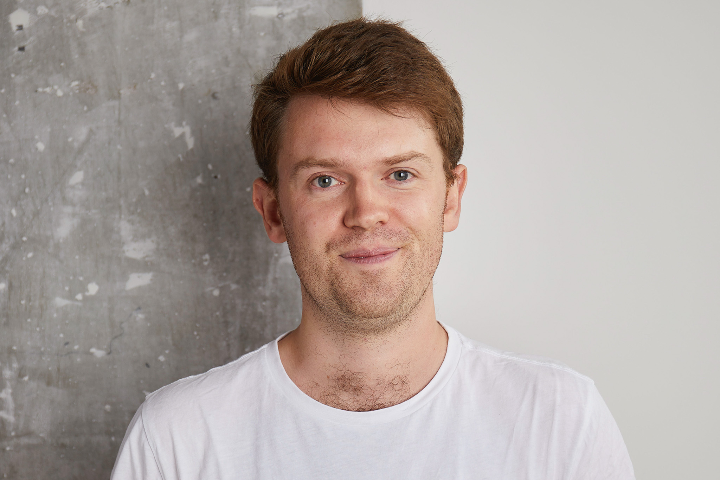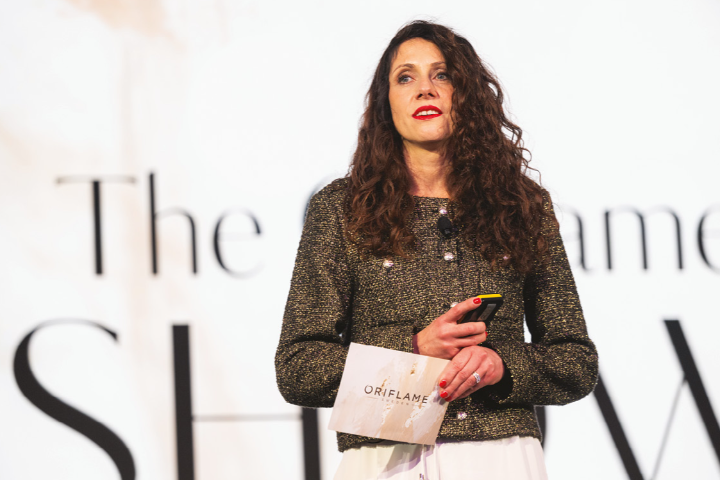
CARE, SHARE OR DARE: How the best in business break through
10 November 2015
Paulina Lundin
What makes the best in the business stand out today, in a market more competitive, crowded and demanding than perhaps ever before? Michael Hayman and Nick Giles, co-founders of the communications agency Seven Hills, have interviewed over 30 successful founders and CEOs with the purpose of finding key factors of success for new innovative companies.
‘’Today, the environment for business has changed’’, Michael Hayman tells the SCC. ‘’The world is moving at a faster pace than ever before, where consumers are information rich but time poor. A new reality is that today’s success stories can be trashed in seconds by the rapid rise in social media.’’
What Hayman and Giles have learned speaking to founders and leaders of the world’s most exciting businesses, is that profit as a main driving force no longer is enough for a company to become successful. It is rather articulating a sense of purpose that inspires belief among customers, employees and shareholders that makes these new companies so powerful, and what separates the real champions from other companies.
The story of the successful transportation company Uber takes us back to 2008, when the co-founders Travis Kalanick and Garrett Camp were attending a business conference in Paris. Everyone that has been to Paris can agree with the impassibleness of finding a taxi during night time, and the same experience did the two friends have after the conference had ended. The misery ended up being the start of Uber, one of the most successful companies of today valued at $50bn in 2015.
The story of Airbnb, the company where people list, find, and rent lodging, started in 2007, when designers Brian Chesky and Joe Gebbia couldn’t afford the rent on their San Francisco apartment. There was a design conference coming to town and hotel space was limited, so they set up a simple website with pictures of their home, offering a stay with home-cooked breakfast in the morning. Fast forward seven years, Airbnb is now a company that has outshined industry legacy Hilton Hotels in night bookings.
The mission of Airbnb is clearly to change the experience of travel and allow people to find a home anywhere in the world. Founder Joe Gebbia stated that ‘’ultimately while solving our own problem, we were solving someone else’s problem too’’. Uber’s purpose is to provide "transportation as reliable as running water, everywhere, for everyone". One of the founders, Travis Kalanick, said he believes Uber can ease congestion in London by taking a million cars off the roads through its ridesharing service.
What’s the lesson?
A recent study by Deloitte found that 92 per cent of the millennial generation believes pursuing profit alone is no longer enough. This is the same group that will represent some 75 per cent of the global workforce by 2025.
‘’Entrepreneurs should set their sights high and let purpose drive them’’, says Hayman. ‘’Profit becomes easier when you have a clear sense of purpose and it allows focus and ensures that the business stays on the right path. A sense of purpose inspires belief, trust and friendship which transcends the cynicism so many have towards marketing and brand messages’’.
‘‘By forging a bond of trust with the consumer and the marketplace, companies transcend the cynicism so many have towards marketing and advertising messages.
’’The importance of entrepreneurship has grown tremendously and has become more about rapidly solving social problems faster than the competitors''.
Hayman and Giles compare the new entrepreneurship movement with charity and politics, where money is not the main fuel to the business. It is rather the will to change the inherent culture and habits that inspires these new successful businesses to keep moving.
‘’Business can learn a great deal from politics in this regard’’ says Hayman’’. ‘’Today’s business environment is a battle for attention and approaching your business like an election candidate is a powerful option. As Travis Kalanick, the co-founder of Uber, has said: ‘We are running a political campaign – and the candidate is Uber.’’
Carers, sharers and darers
The authors also argue that there are three types of categories of change for many of the new upcoming innovative businesses. The first category, the carers, are the companies who aim to improve people’s lives, for example the American grocery chain Whole foods with the slogan: Are you hungry for better? The second category of businesses, the shares, take advantage of the unique networks that the Internet has created and have benefited companies like Airbnb. The third category, the darers, are the companies like Uber that becomes motivated by the phenomena to change the world by using the technology. The darers can be compared to a political campaign where the candidate are the companies themselves.
We live in a world where change is the new normal to thrive and where companies that are standing still have a struggle to survive. Ten years ago, the business climate was completely different where for example Blockbuster had a market share in the $16bn rental movies market. Today, it is a market share that Netflix has taken control over with more than 62 million subscribers around the world.
Today, 40 percent of the US GPD is dependent on companies that did not exist 15 years ago. It is estimated that two thirds of the companies who will make up the S&P 500 in a decade’s time are probably not yet even created.
According to research from Havas, one of the world’s leaders in communications and media expertise, consumers would today not care if 74 per cent of the brands disappeared tomorrow.
If a company becomes a business with purpose and cares about their consumers beyond product and price, Hayman and Giles argue that it will be a greater chance to become one of the 26 per cent that people will actually care about.
‘’In 2015, the ability to explain your proposition is paramount’’ says Hayman. ‘’Your narrative matters. In short, the best story wins and change is the only constant where damage is the punishment for standing still’’.
Michael Hayman and Nick Giles’s Keys to success:
- Entrepreneurs need to define and communicate a clear mission and purpose of their firm.
- To solve social problems have become more important than ever.
- Belief is the new currency, profit alone is no longer enough for companies to succeed!
- Change is the only constant where damage is the punishment for standing still.
Published by Portfolio Penguin, Mission: How the best in business break through is now in stores and online!



